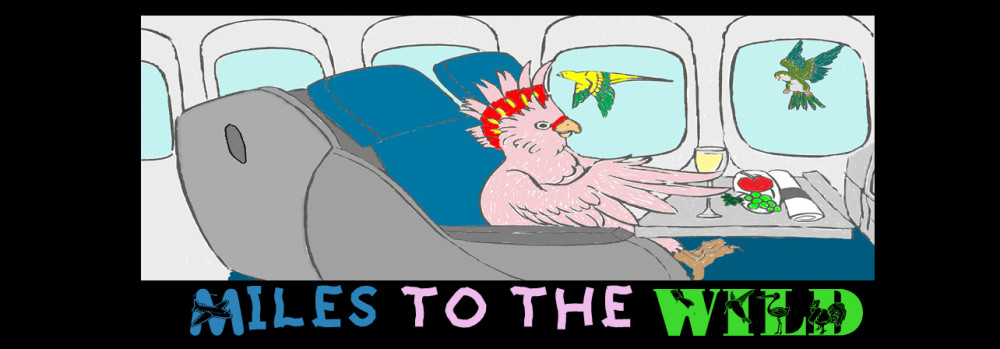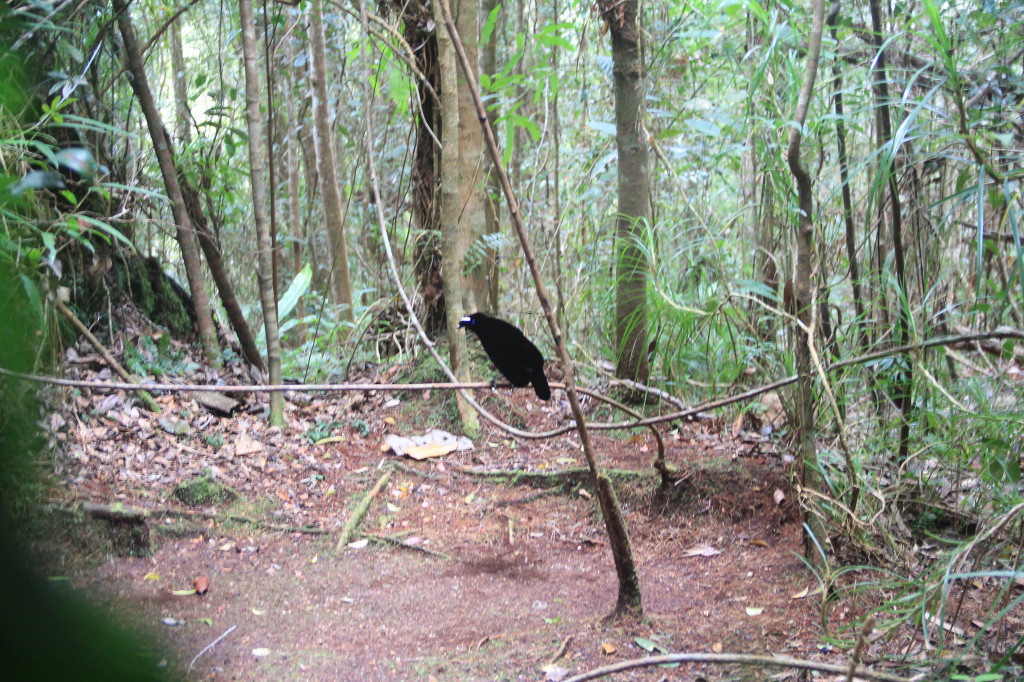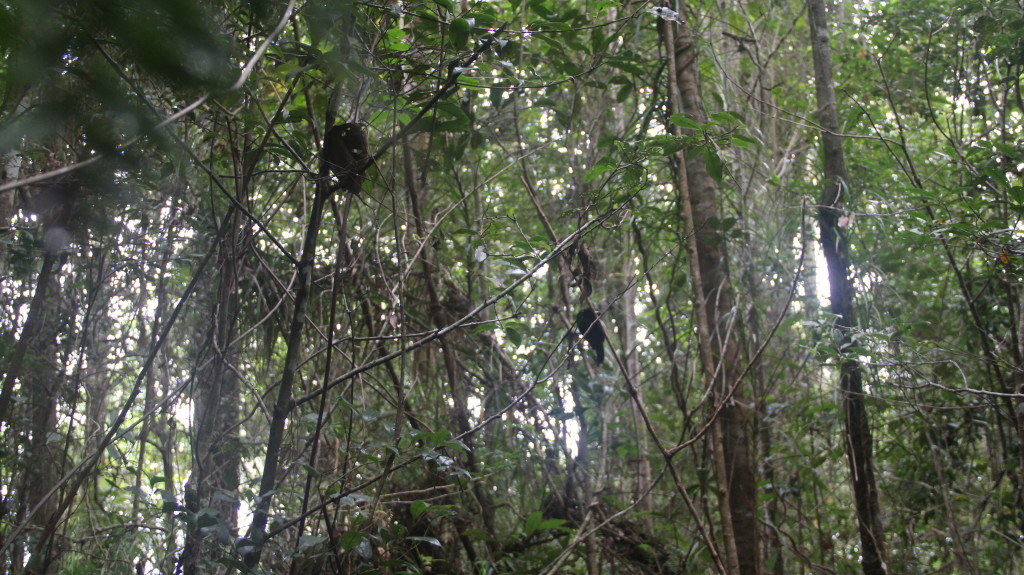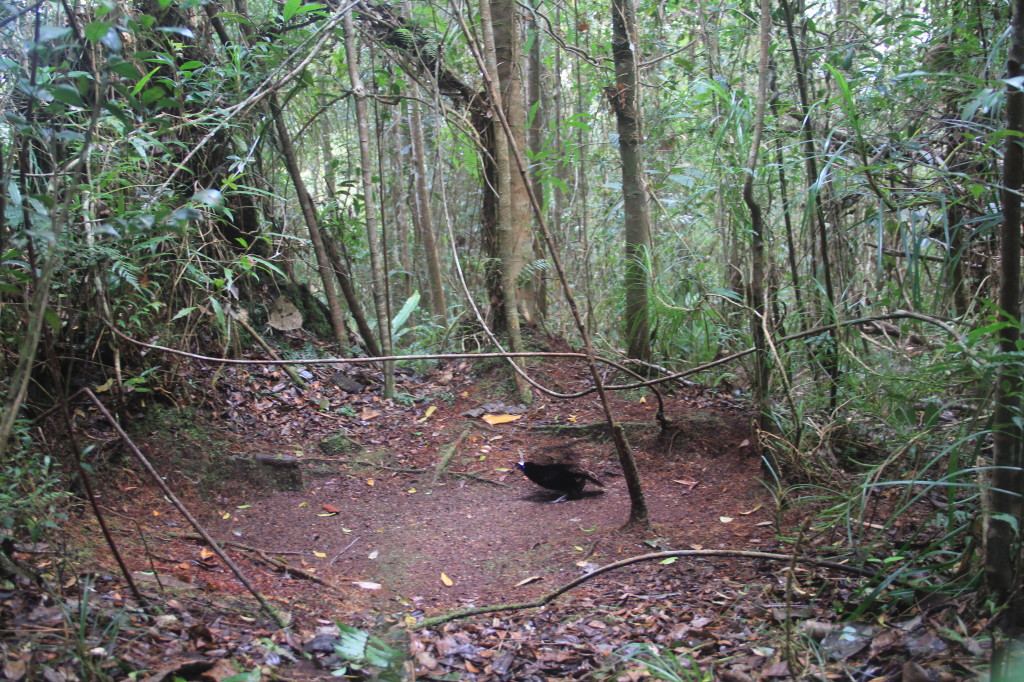The Western or Arfak Parotia, Parotia sefilata, is a medium-sized, approximately 33 cm long, bird of paradise with a medium-length tail. Although their range is geographically limited, they are widespread in their range and not considered to be endangered. By far, the easiest place to see them is in the Arfaks where Zeth Wonggar has built hides at their display grounds. Like other Birds of Paradise, they stay at the same display grounds year round so that makes them predictable. Good for eco-tourists but not good if they are being stalked by trappers.
Western Parotia Range
The first visit in the afternoon saw the bird unsuccessfully trying to call in some females so he could strut his stuff.
We were up at dawn and back in the hide and this time our feathered friend managed to lure a few females in closer.
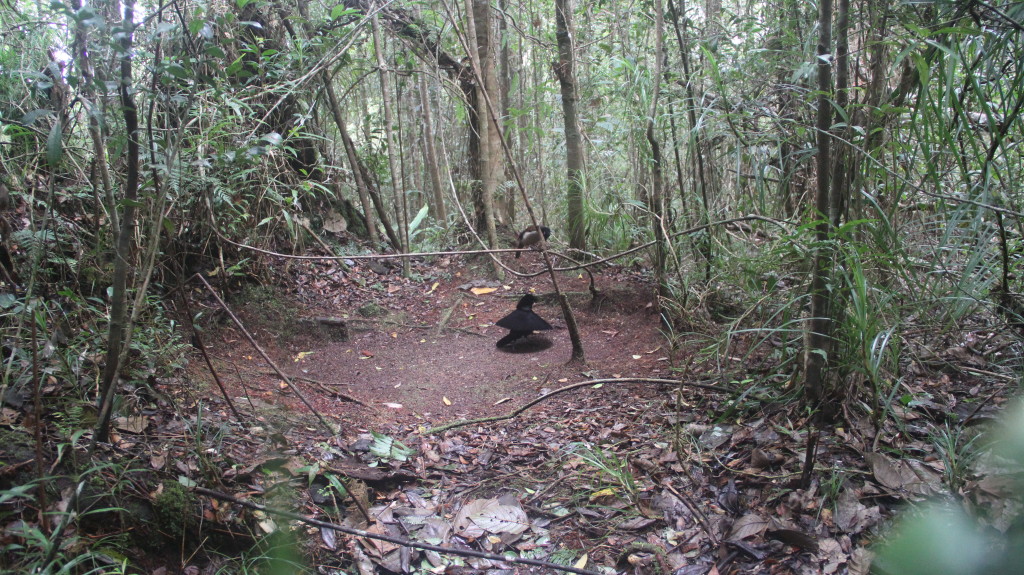
One female Western Parotia comes in for a closer look while the male shows his best moves. There were a couple other females higher up in the branches.
You can’t blog about the “Feathered Lord of the Dance” (my nickname for this bird) without showing his moves, so here’s a compilation of clips taken the afternoon before and the morning we saw him dance. This little guy tried so hard to entice the females, I was so hoping he would “get lucky” but although he got some feminine interest he wasn’t able to “seal the deal”.
If you are curious about how Parotias use the iridescent patches on their heads, see my post on Extreme Photography where a Nat Geo crew shows the lengths they went to to get the same angle the female Parotia sees.
